Things I wish I would have known while learning art
Self-education is one area that has really benefited from the growth of the Internet. We’re no long bound to local courses, outdated library books or full-time studies. Instead, we have access to knowledge and people from all around the world, much of it at very low cost. But teaching yourself a new skill also introduces new struggles. Here are a few things I wish I would have known before I started my art journey.
Video editing vs. reality
When you look at an artist painting on Youtube, you’d be tempted to think they are lean, mean painting machines who finish a flawless project in under an hour.
Think again.
Video editing effectively eliminates everything that makes art such a varied (and fun) process. You don’t see time spent thinking, walking around, sketching, looking, sketching again and looking again. And on top of that, we have a tendency to speed up videos for Youtube, to keep viewers engaged.
I can only speak for myself, but if you were to put a camera in my studio all day, watching me work, you’d fall asleep after an hour. Most of my time spent working on a painting, is actually spent thinking, staring at random objects, talking to myself or walking around. Occassionally I yell a curse word or throw something at my wall. The time that my brush actually touches my surface is limited.
To give you an example: Most of my course projects that are edited and in real-time (so no speeding up) end up under 2 hours. In reality these projects take me about 6-10 hours to complete. I divide those hours between 2 or 3 days which is another thing you don’t see on camera: sometimes you need a break from a painting, to come back the next day with fresh eyes. It’s very rare that I can focus on one painting for more than 3 hours a day.
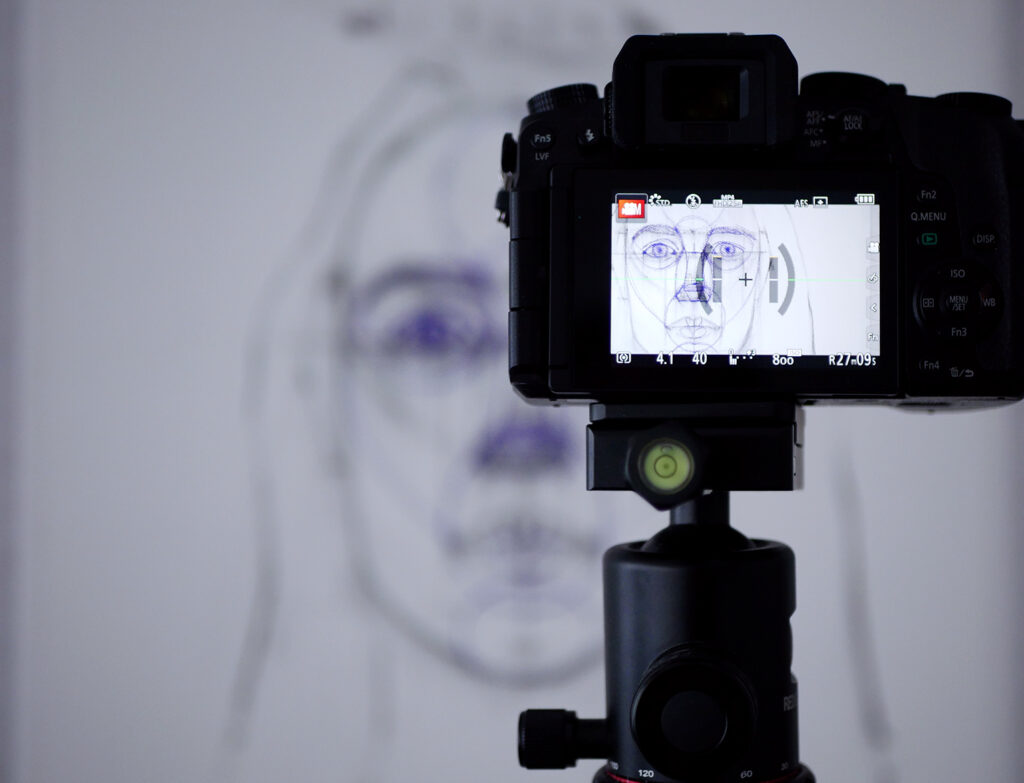
Watching experienced artists
Experienced artists can be very inspiring if your mindset is correct. Have you ever felt a little deflated after watching someone create an incredible painting, seemingly effortless? The pitfall when watching experienced artists, is that you don’t see where they came from; you only see their current level.
Ease and flow come from years of repetition, failure and experience. When you’re just starting out, it can be very difficult to extract learning points from an artist with 15 years of experience. The reverse is also true: it can be difficult for seasoned artists to remember what the struggles of novice artists are and how to tackle them. Good artists are not always good teachers. And the best teachers are not always incredible artists.
After you feel you’ve gone through the basics and progressed to an intermediate level, you may want to come back and re-watch those advanced artists. I think you might feel more confident focusing on topics such as planning, correcting mistakes and predicting consequences.
Skipping difficult topics
One of my major issues self-teaching – both with art and any other skill – is skipping stuff you don’t like and ending up with a bad foundation. I used to work in computer graphics, programming and modelling. I had the same issues there. I ignored topics that were too confusing or that I didn’t care for.
The other issue is that it’s difficult to know what you need to learn. After all, you are student and teacher in one. No one is telling you where to start or what to do next. It’s incredibly difficult to see where you went wrong and what you need to practice in order to fix it.
This is why I feel social media is so important for self-teaching artists: you can ask for help on topics you can improve on. Other people can spot things can you are blind to. You can also join challenges that might motivate you more to repeat skills.
I do want to point out that it’s perfectly fine to tackle things only when they become a problem to you. This is the freedom that self-education allows for; you don’t have to follow a set curriculum. But be aware of your own limitation and ask for help before you lose confidence and motivation.
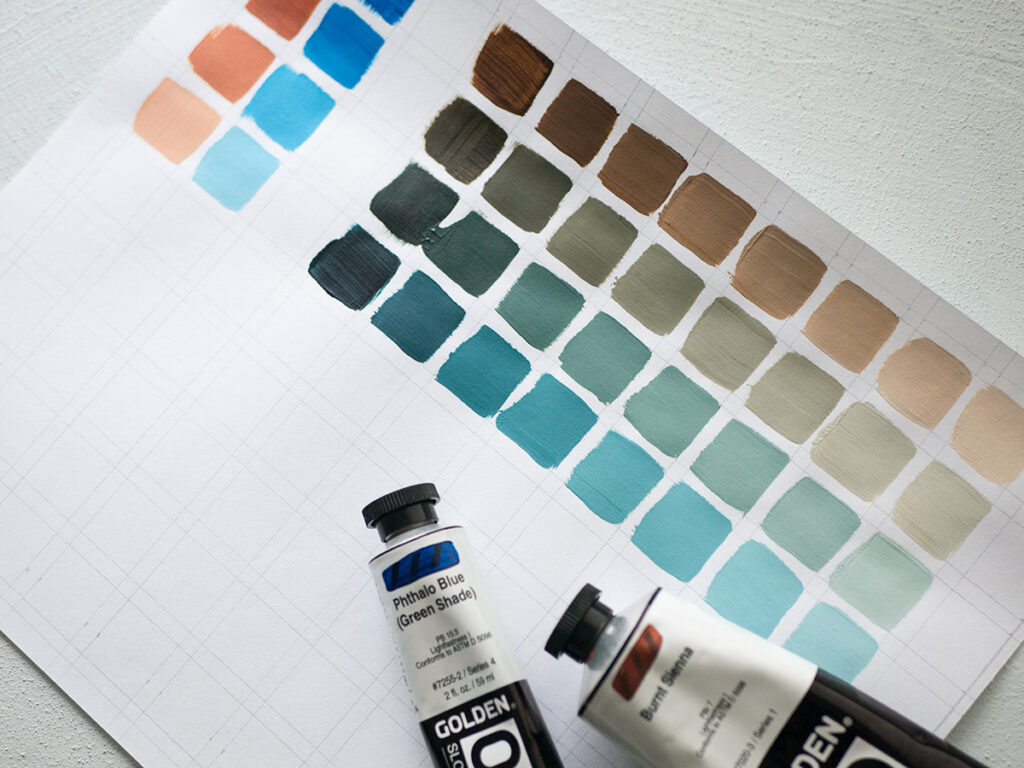
Learning about new materials
Learning to work with a variety of materials is crucial to developing a solid style. Different materials force you to think about the way you work, expanding your skill set. They allow you to apply the basics – such as values, shape and composition – in a different working environment.
It’s easy to try a new material and decide it isn’t for you because you don’t know how to work with it. At the same time, the internet is full of project-based art videos and it can be difficult to find videos that focus more on the process of working with a certain medium.
When you try a new medium, it can help to start with the absolute basics. For me that is black and white, with nothing added. No gel medium to your acrylics, no oils/thinner to your oil paint. Just the material in one color and white. Don’t get overwhelmed by videos that say you need to buy 5 different additions to get it right. Paint and dry media are nothing more than pigment and binder. If you remember that, you can create any value, with any medium.
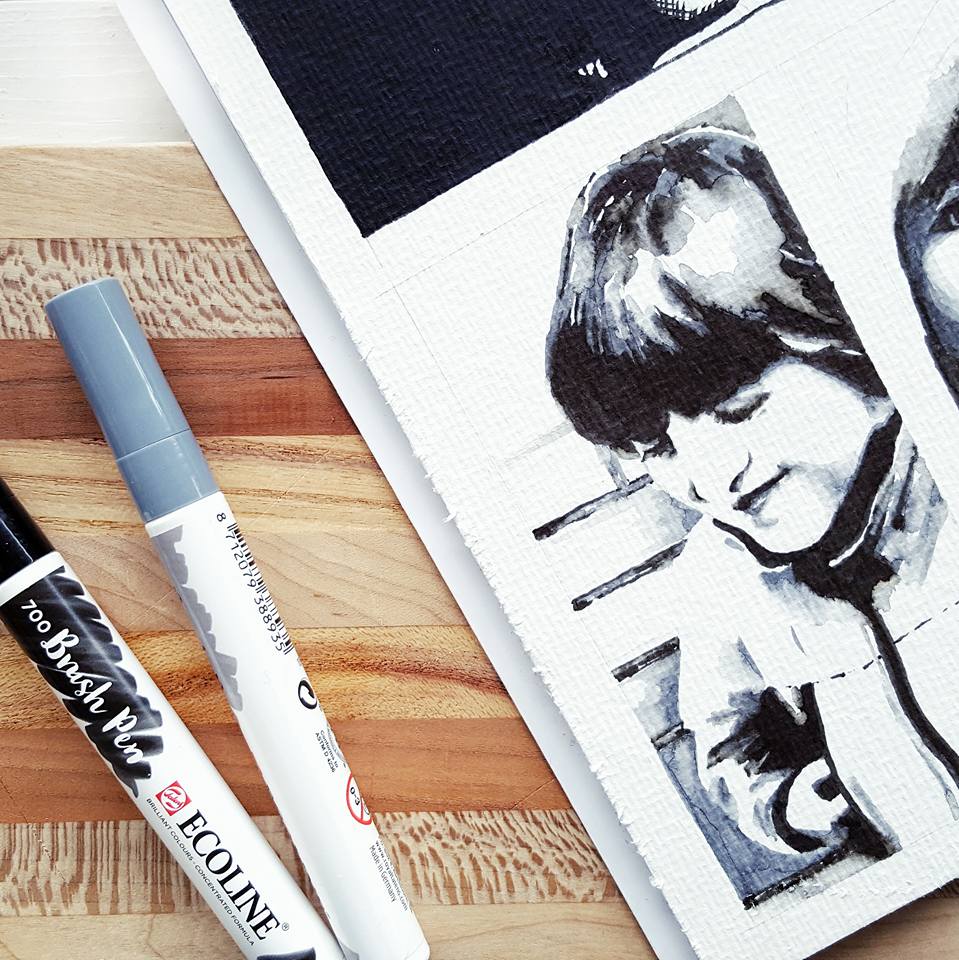
Comparing yourself to others
Comparing yourself to others is very natural. We look to people we admire and check our work against theirs, to see where we stand. There are people who get inspired and motivated to work on their art even harder. They see the road they need to take in order to get to that point. And most importantly, they believe that if their favorite artist can do it, so can they. And they’re right.
Then there are those who get discouraged, deflated even, when looking at famous or popular work. Who feel that their work doesn’t belong on a social media platform with “better” artists. Who feel overwhelmed studying the work of great masters.
These are the people who generally don’t benefit from comparison or looking at other work for inspiration. For many, just seeing the end product – the finished painting – can be meaningless in terms of what it means for your own art. How did it get there? What techniques can I copy? What skills do I need to study?
If you feel overwhelmed by other people’s work, try asking yourself why you’re doing this. Why do you do art? Almost always, this conversation will bring you back to yourself. Try not looking at other works for a while, maybe avoid social media for a week if you need it.
The reason why you do art, is the single most important thing you need to know and the only validation you will ever need.
Keep a good record of your progress; don’t throw away old work. After a few months you can compare your current level with your previous work. Many of us are actually shocked at how much progress we make, without even noticing!
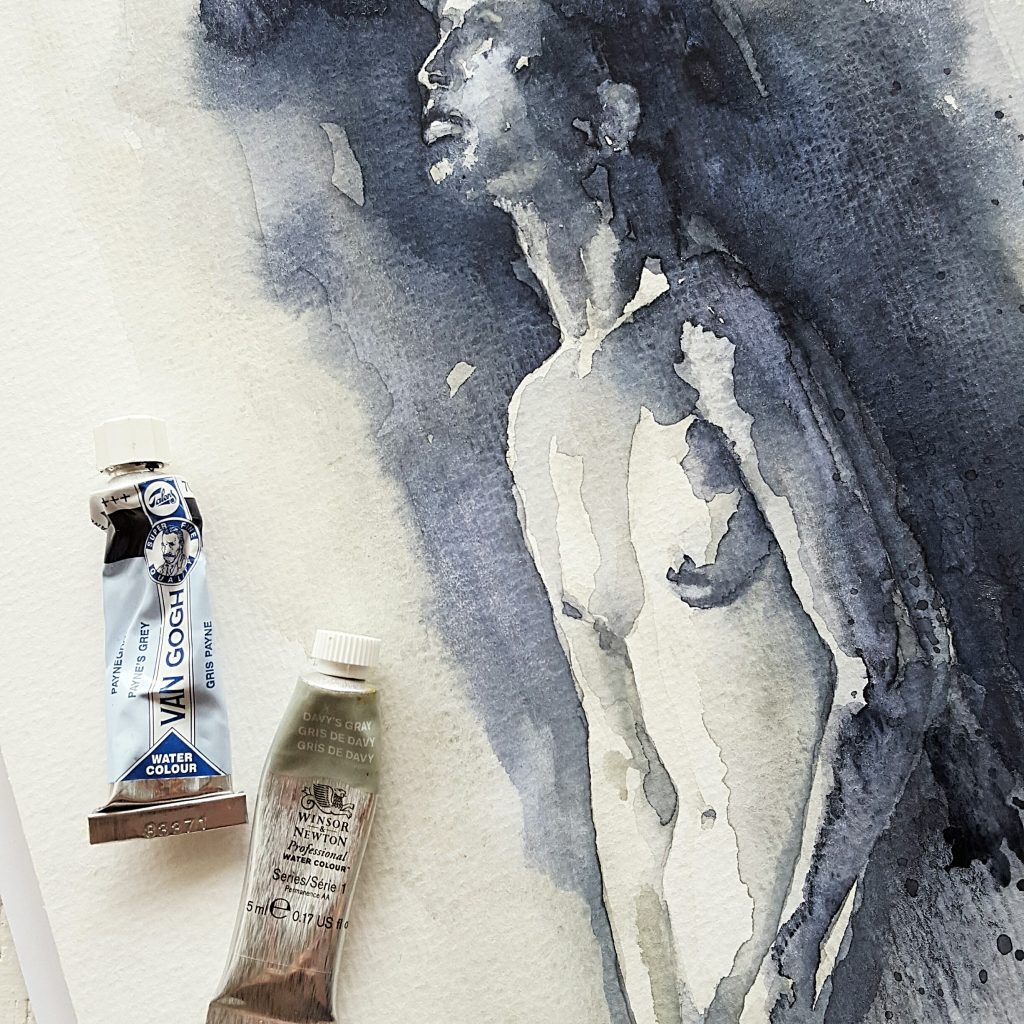
Don't fear the ugly stages
Ugly stages are a real thing people. It’s that stage of a painting where, when my son mindlessly walks into my studio, he screams and goes “JEEZ MUM WHAT THE HELL IS THAT?!”. It’s that real.
I get a feeling that a lot of online video demos are chosen for their compatibility. I do it too. If want to record a short demo, I choose a style and the materials that I know will build up nicely. And that won’t fail me and require 10 rounds of corrections. I also plan ahead, so I know exactly what I want to do and what I need to do to get there.
On the other hand I had projects going not so smooth while recording them for courses. That’s especially annoying when you’re half way and already invested hours into it. At some point I figured, why not correct on camera? Why not show people that I’m obviously not perfect, and teach them how to make corrections. I’ve made many corrections and went through many doubtful stages in my classes to show you that it’s a natural part of the painting process.
An ugly stage or a flawed feature is not going to fail your painting, if you know how to correct. So don’t throw away that one portrait that you messed up. Even if you don’t want to keep it, practice corrections on it. Being able to correct and look past a certain stage will grow your confidence immensely.
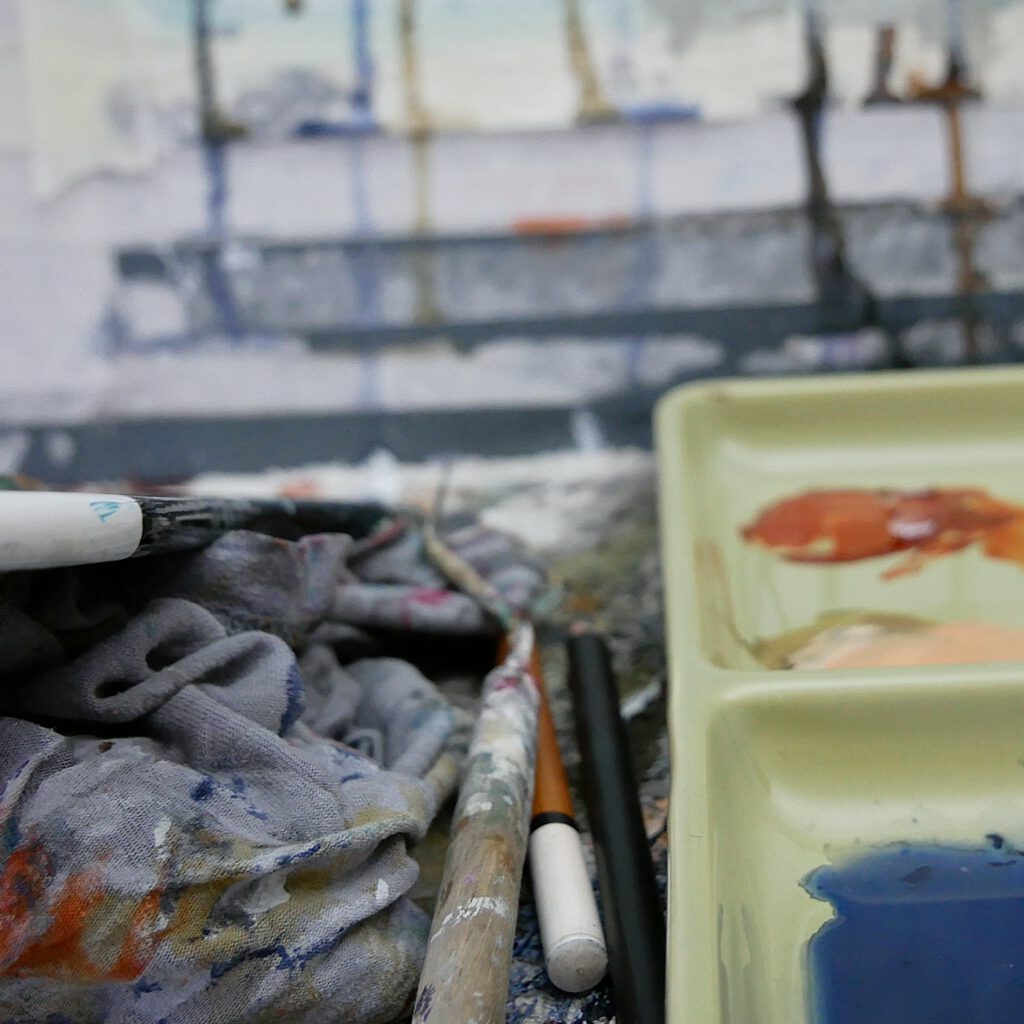
Stop trying to 'choose' a style
You can’t. Trust me, I already tried that out for you. What is style anyways? Two artists, using the same materials, the same techniques, the same model. And ending up with two different painting. To me, that is style.
Here’s the thing: I think a lot people don’t nescessarily love their own style. I think people are much more prone to loving other people’s styles. Maybe it’s the same as with your mirror image; you can like it, not like it, hate it, but it’s rare that you fall head over heels in love with your own image.
Anyways, enough with the amateur psychology. Style changes, as you change, but I don’t believe you can simply ‘adopt’ a new style. Instead, focus on learning techniques, as many as you can. You will notice that you use certain techniques more than others. That, combined with the fact that you inevitably make unique movements and decisions, will result in your style.
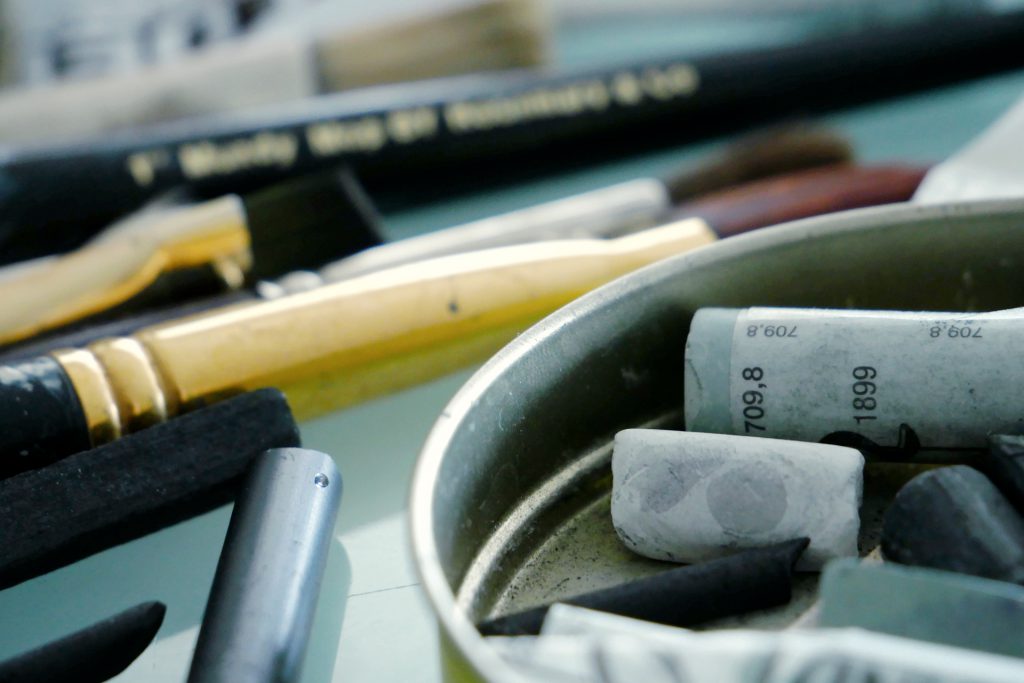
I hope you enjoyed reading my thoughts on this. Maybe some of it can help you avoid certain difficulties we all face when self-teaching. Don’t be afraid to ask for help; none of your struggles with art are unique really, someone out there has had the same problem and might offer helpful insight. If you’d like, you can join my art group on Facebook. Let me know what you think about this topic; is there anything you would have liked to have done differently when you started? Or are you just beginning this art journey and something is holding you back? Let me know in the comments or on the Facebook post!



9 thoughts on “Things I wish I would have known while learning art”
It took me a long time to realize you don’t have to pix one medium or style etc. You CAN do portraits, abstracts, watercolour, acrylics etc. It’s way more fun anyway!
Yes exactly! Venturing into different areas is great, and it can really add to your overall art. Doing abstract work has changed my portraits. That would have never happened if I’d just kept on studying faces. Thank you for your thoughts on this <3
Thank you Sabra for this article, it was so well done and gave me a lot to think about
Thank you for this helpful article. I’m at a stage where I’m stuck. It seems that nothing I create is successful, even though I see that my portraits have evolved over time. I’ve taken a LOT of classes, 3 or 4 years of year-long courses, and have tried lots of techniques and different media. I feel I may be paralyzed and overwhelmed by the amount of choices out there, so I don’t do anything. It’s so frustrating.
Wonderful article, thank you Sabra. It helps to be reminded of these things. The one thing that has helped me the most in my journey is being kind to myself and telling myself over and over, especially when the doubt creeps in, that I love making art, that I love learning to make art, that I am making progress, that my joy is in the process. Looking back at work from a couple of years back definitely helps because I see that progress and it excites me and motivates me to keep moving forward. 🙂
These words are so valuable thanks for sharing them. I hope you come back soon Sabra. I’m missing your art and your wisdom. ❤️☺️
I love reading articles like this and appreciate that you mentioned making ‘mistakes’ and keeping them in the video footage so others can see how you went about ‘fixing’ it and getting it to somewhere that you can appreciate.
Great article Sabra!!❤️
For me the main struggle and source of frustration has been to able to create a coherent body of work but finally I’m over with this oppressing thought!
I’ve decided that I paint whatever I want and who cares if my work seems created by 10 different persons…art is a way to express your deep being and your personality and obviously I’m multifaceted 😂!!
Very relatable! The funny thing is; even though I feel like my work is like a flee market collection of random styles, my mother often tells me it’s perfectly recognisable as my work. So maybe other people view it differently than we do? Striving for that uniformity can be awfully limiting indeed!